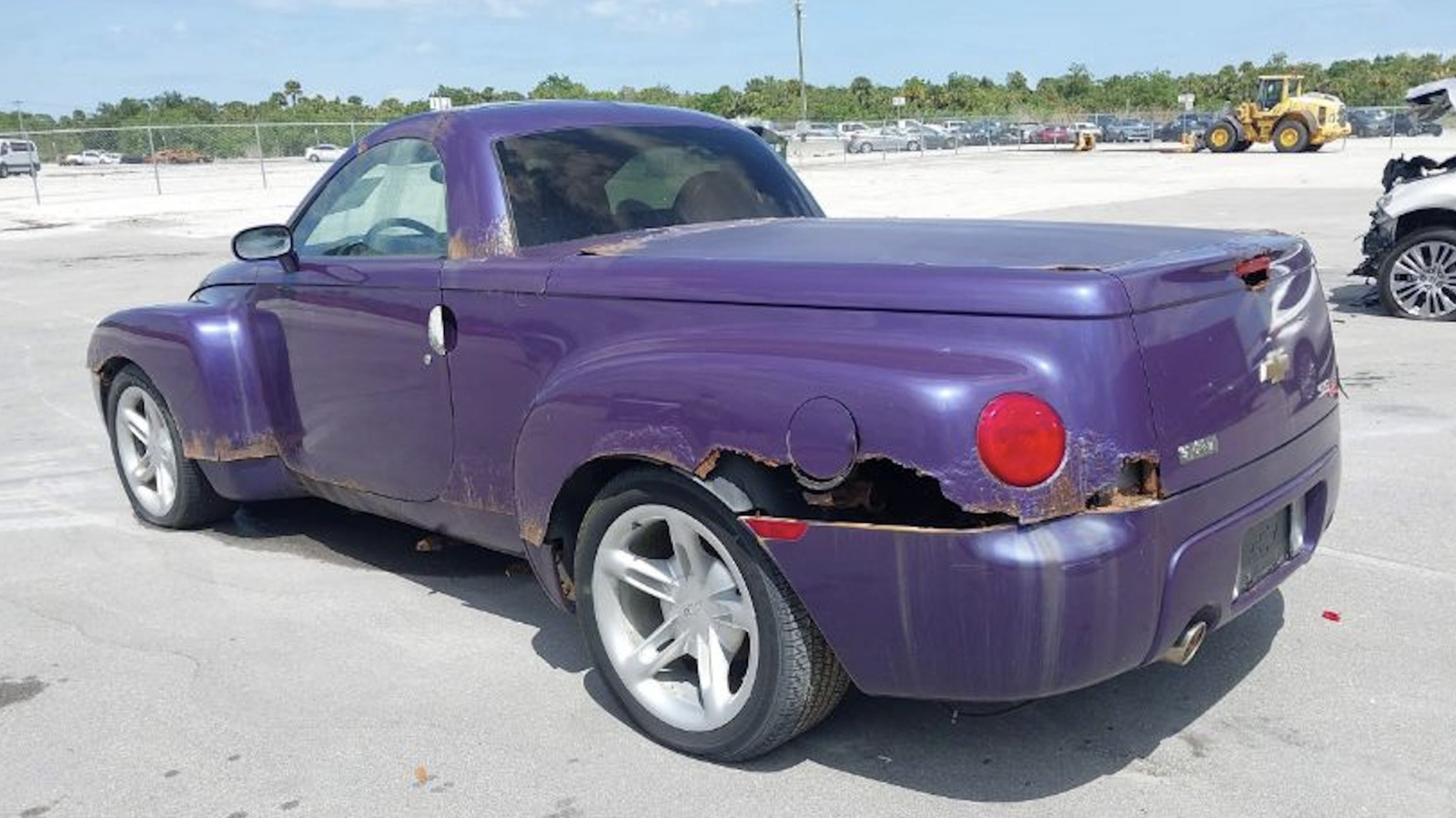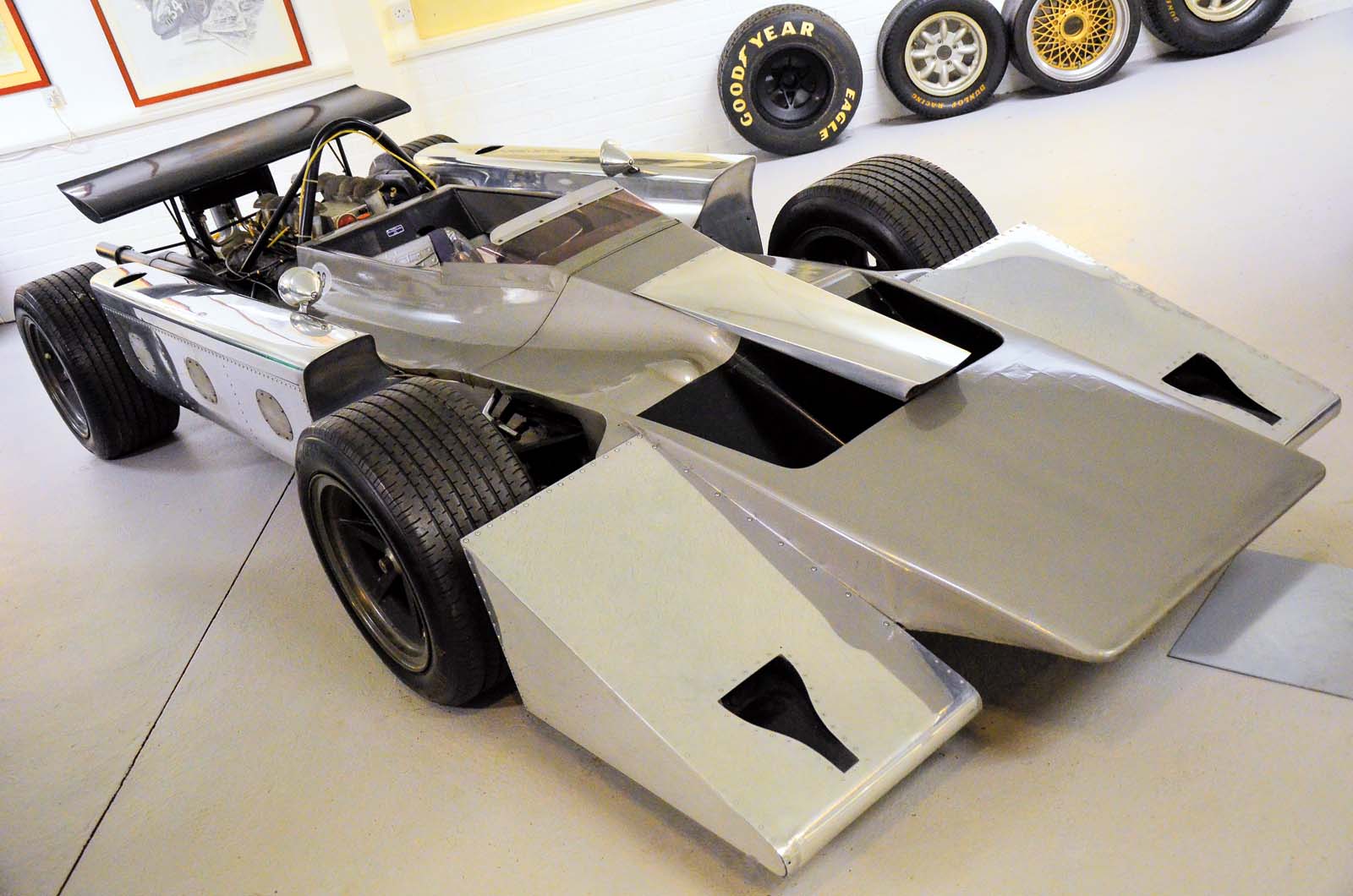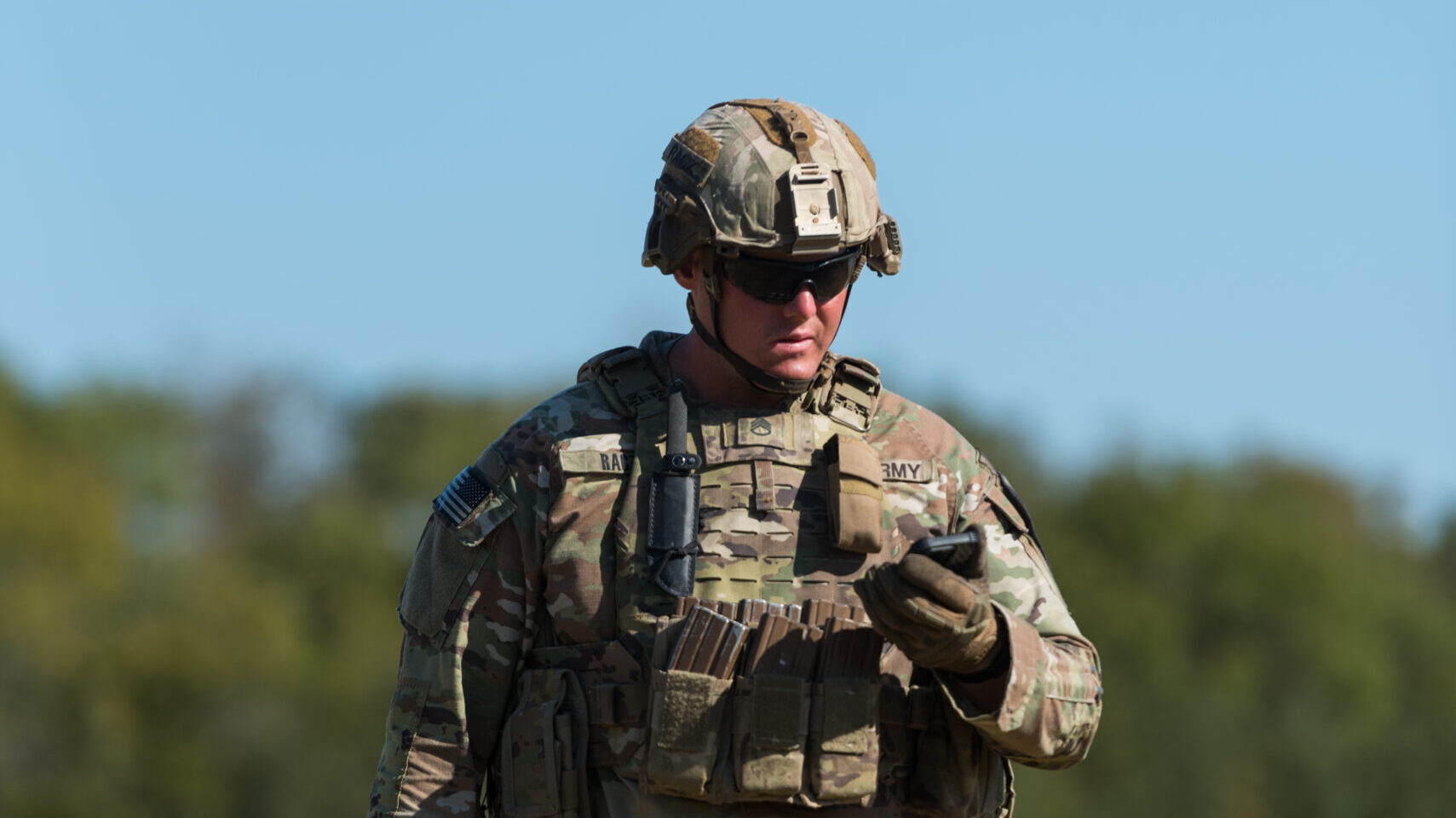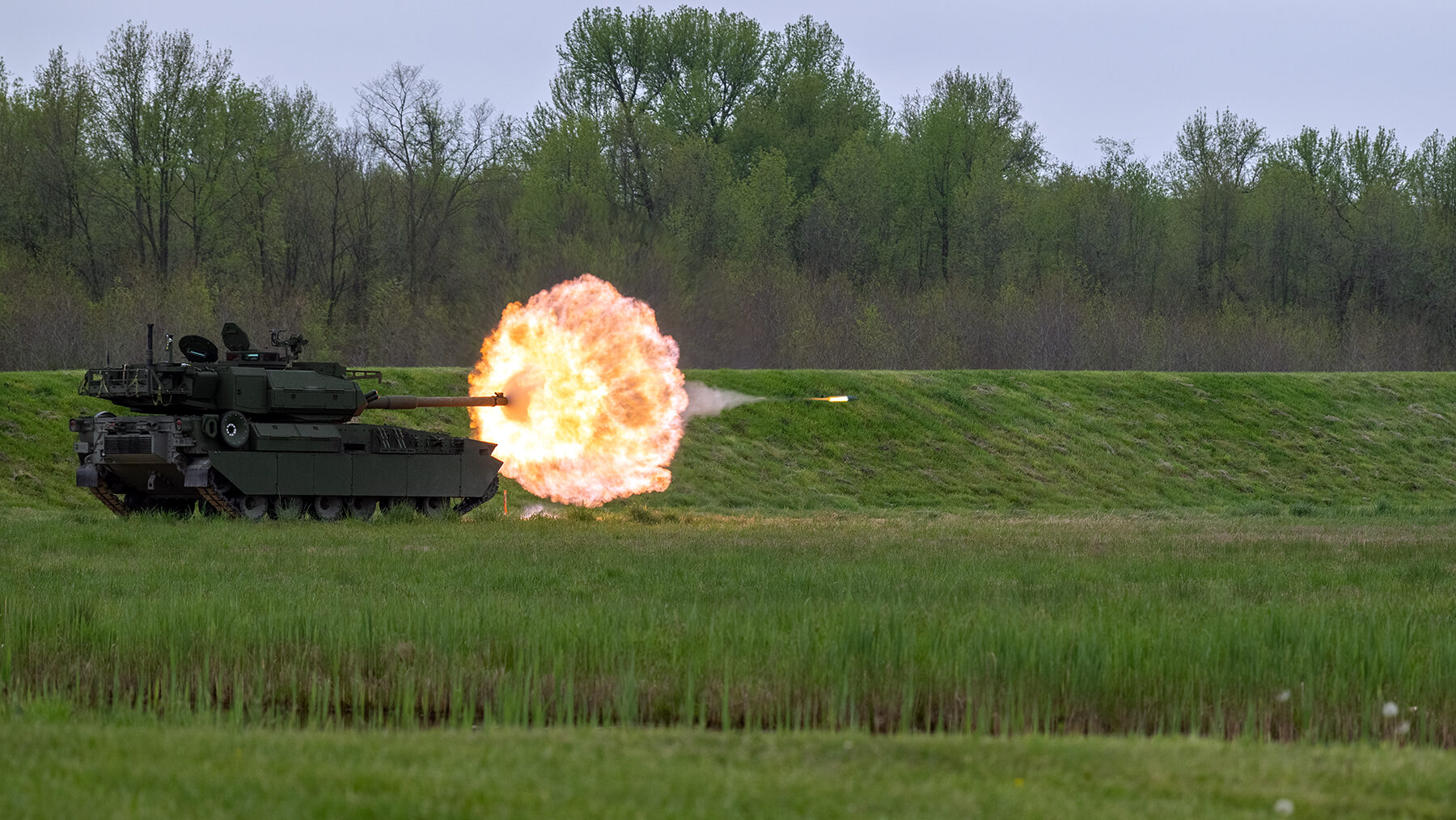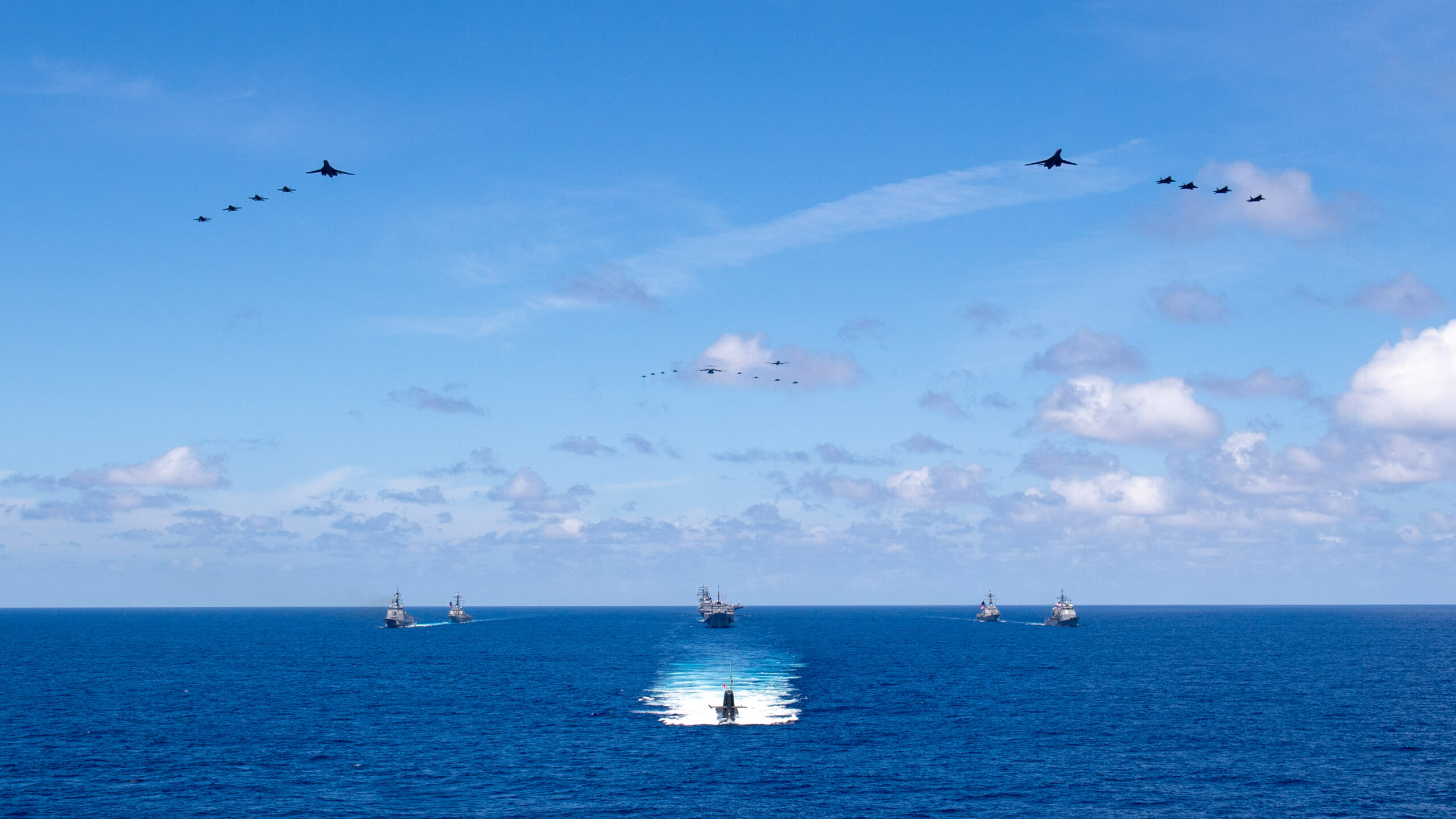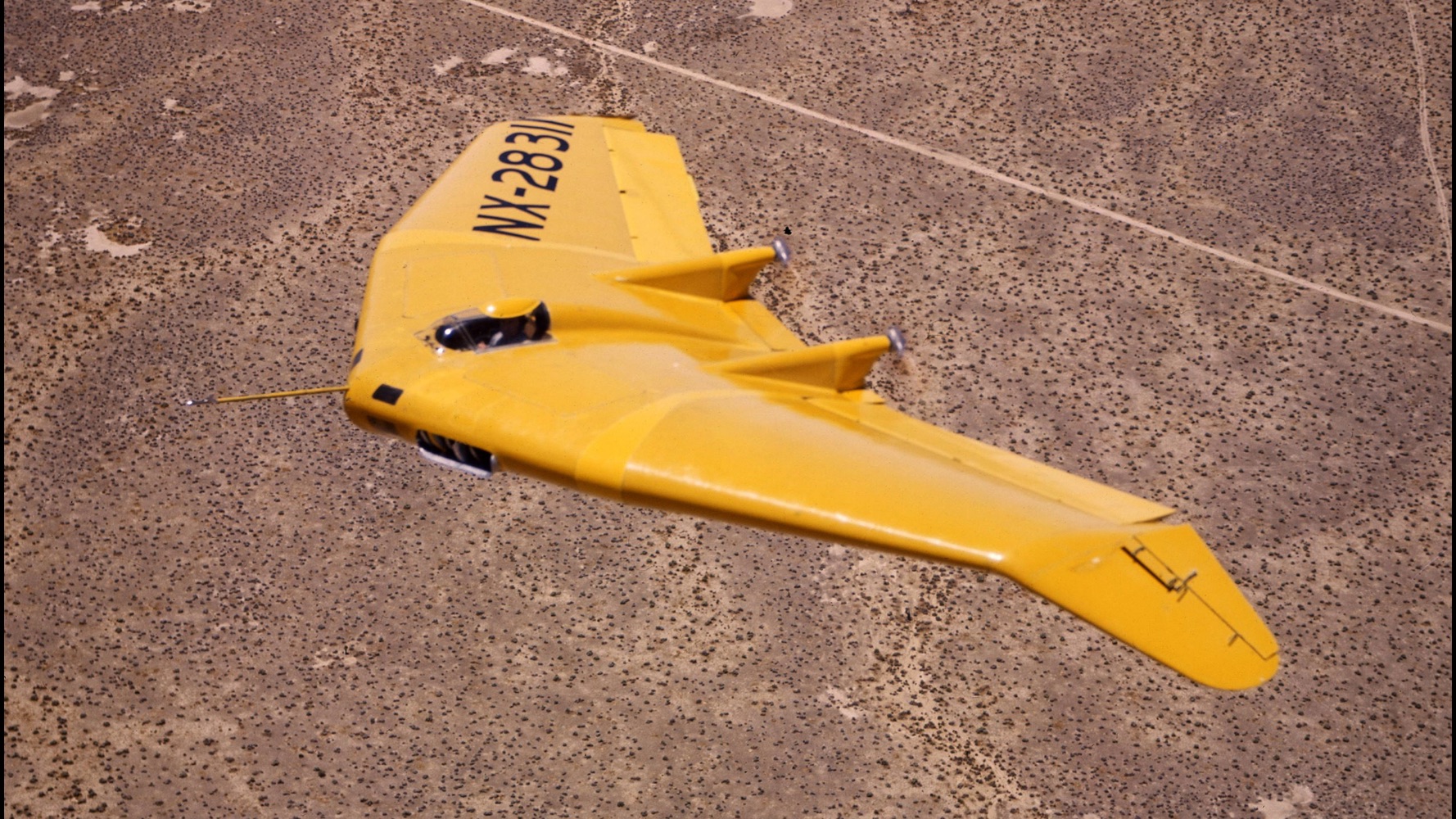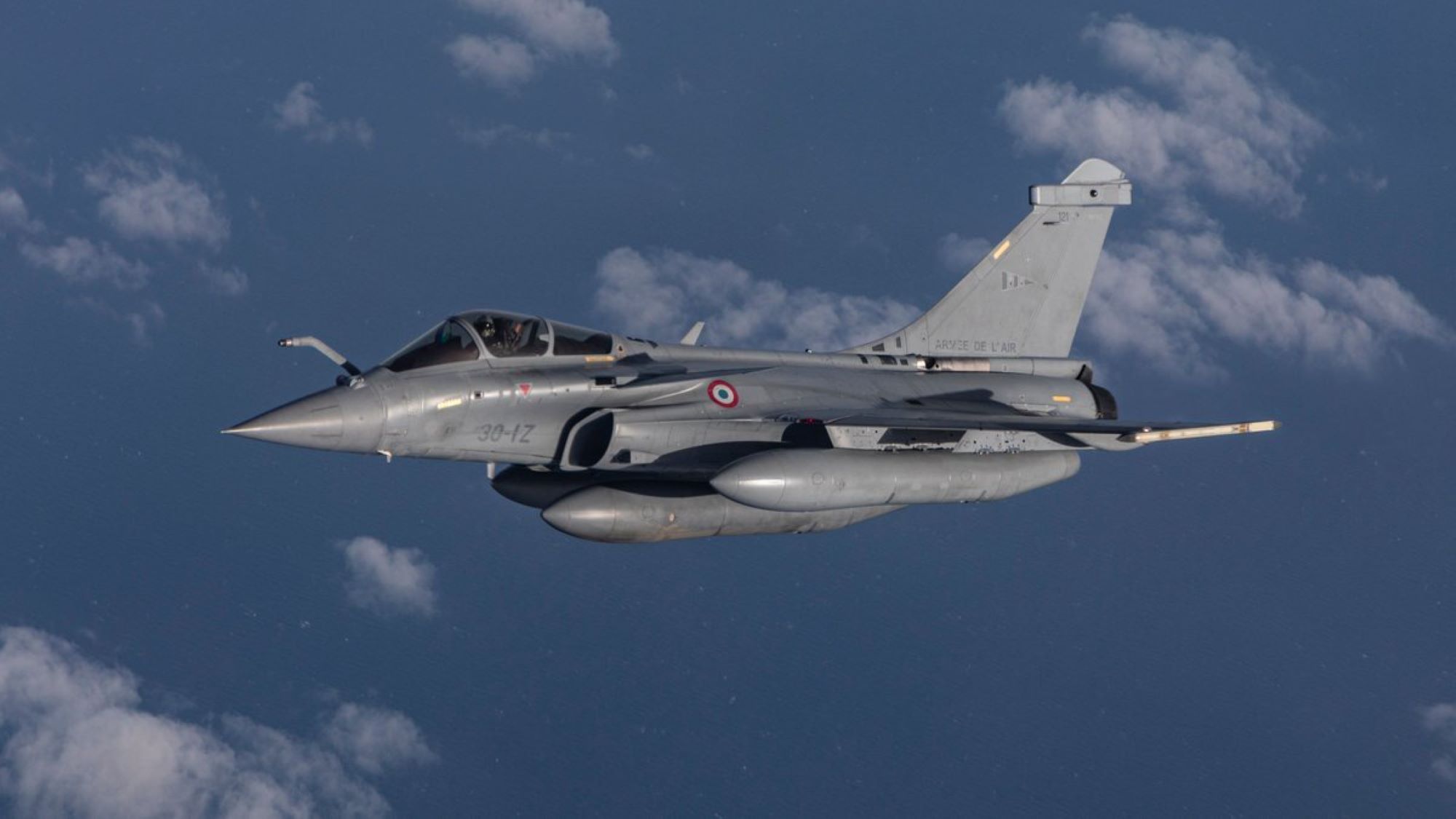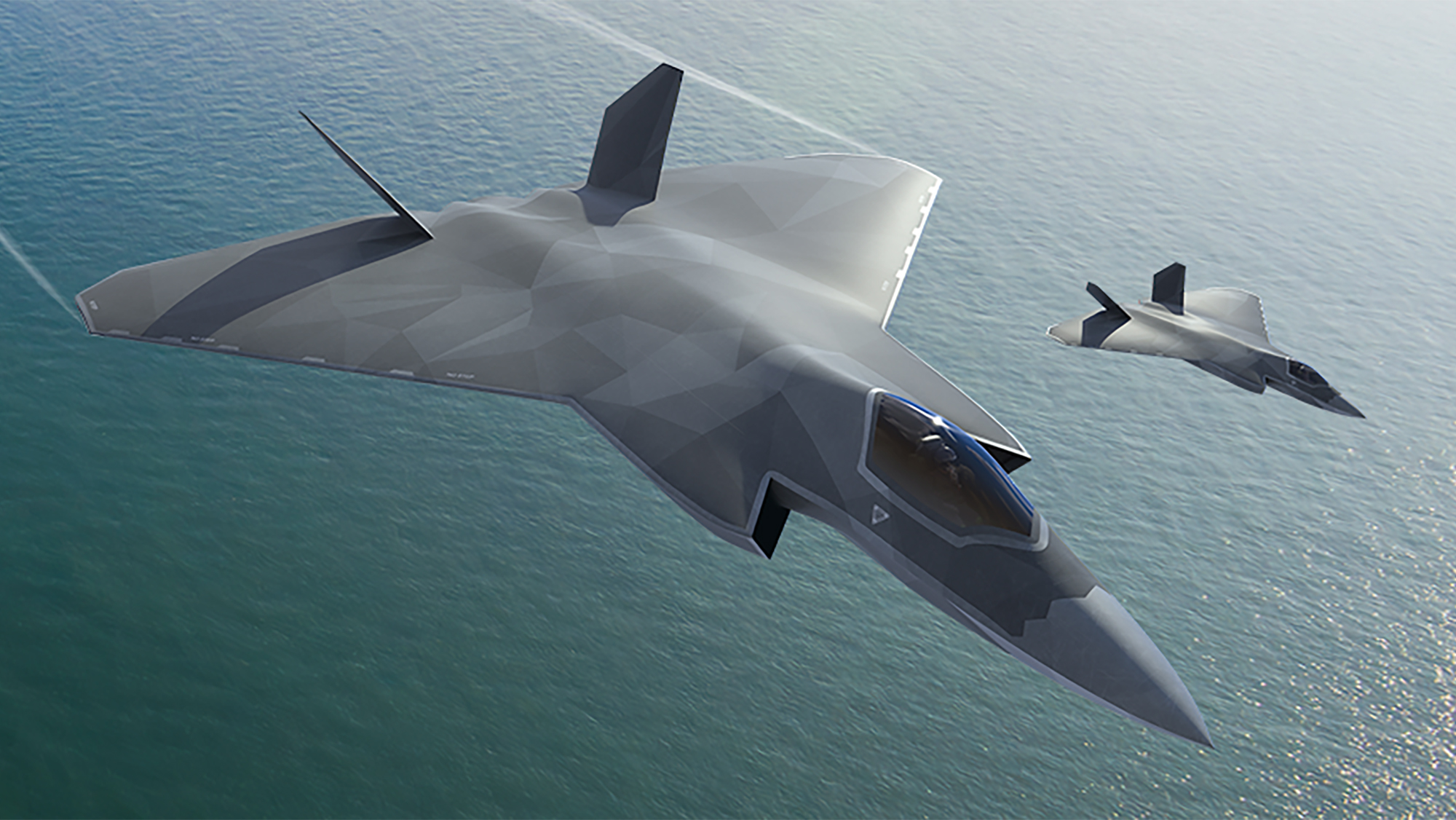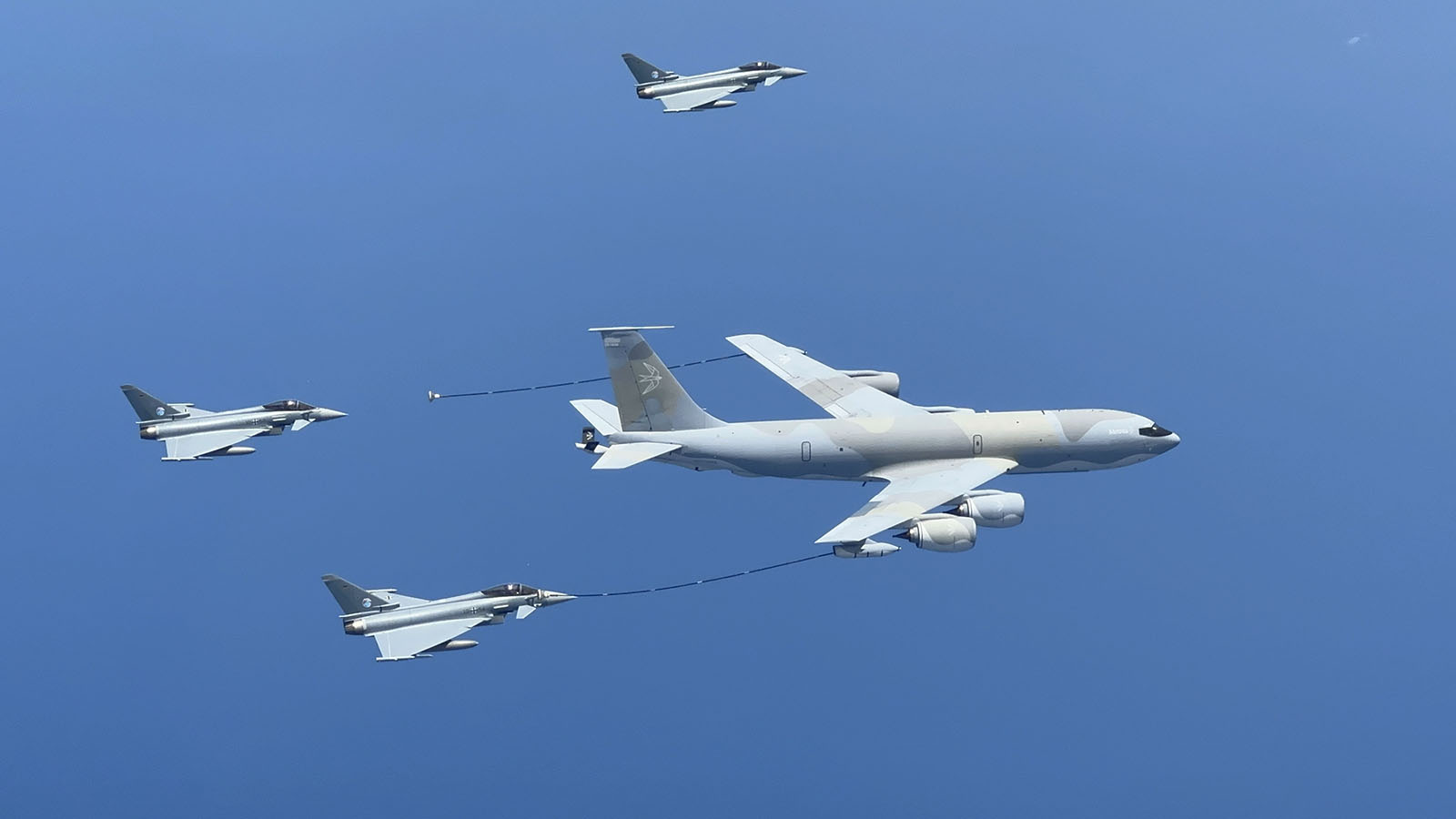With Trump in power, can Turkey find its way back into the F-35 program?
Analysts told Breaking Defense the S-400 and sanctions present significant hurdles, but they’re not impossible to overcome.
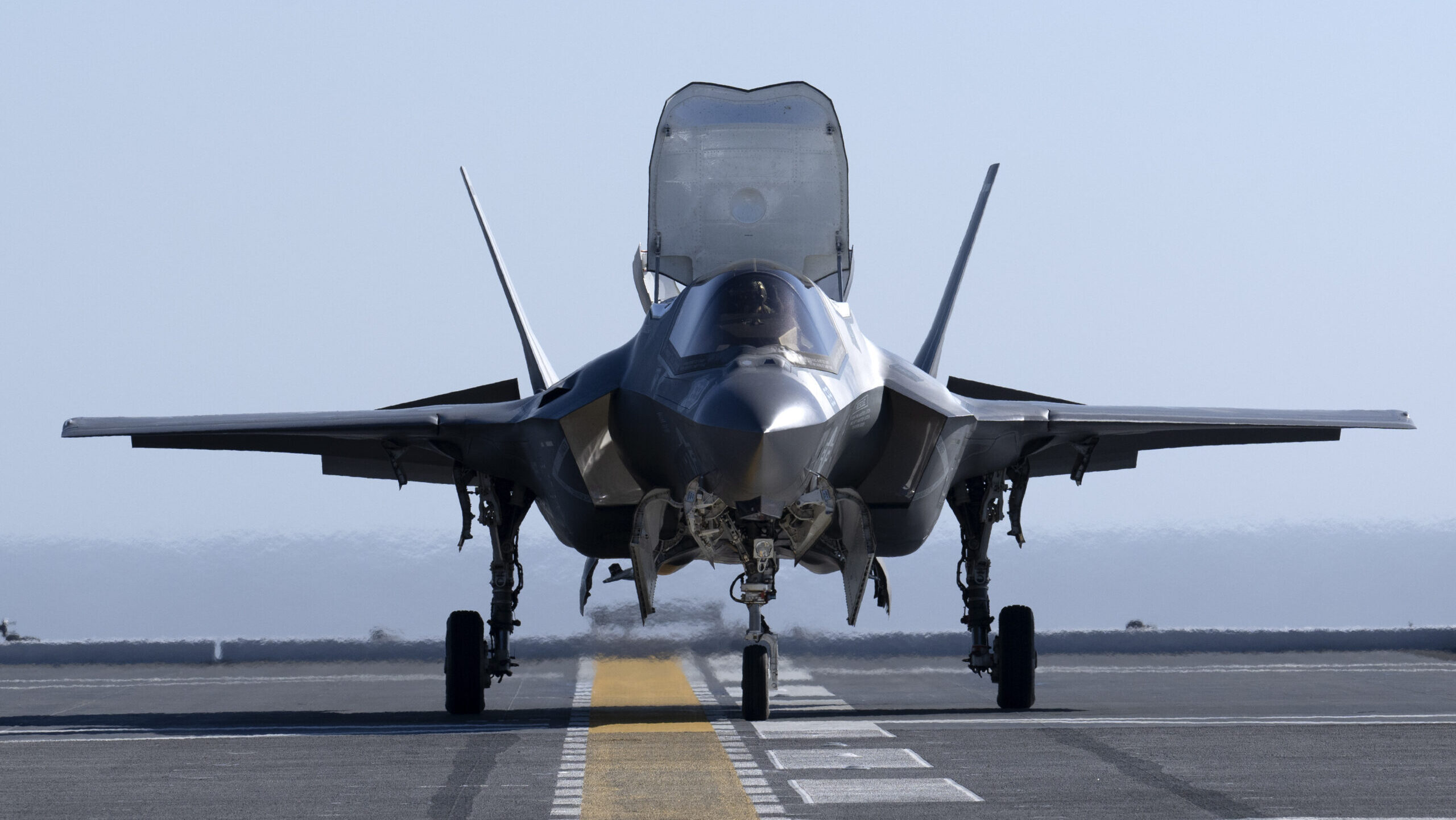

An F-35B lands aboard Japan’s Izumo-class multi-functional destroyer JS Kaga (DDH-184) for the first time on Oct. 20, 2024. (Photo by Cmdr. Darin Russell.)
BEIRUT — In a television interview last week, Turkish Foreign Minister Hakan Fidan reportedly said he hoped his nation would return to the US-led F-35 fifth-generation fighter program, outlining the “process” underway to facilitate the move.
“There are rights that we had gained and rights to [gain] so far,” Fidan said on CNN Turk on April 9, referring to potential Turkish defense industry participation in the program.
Those comments came less than a month after Turkish President Recep Tayyip Erdogan raised the F-35 issue directly on a phone call with US President Donald Trump, asking Trump to “ensure Turkiye’s reentry” into the program, according to a government readout.
It’s been six years since the US removed Turkey from the international F-35 project due to Ankara’s controversial purchase of Russian S-400 air defense systems, but now experts say Turkey appears to see an opening to return to the F-35 fold.
And, according to a trio of analysts who spoke to Breaking Defense, such a geopolitical gambit could succeed — though significant hurdles remain, and opinions vary on Turkey’s chances.
Ali Bakir, a non-resident senior fellow at the Atlantic Council’s Scowcroft Middle East Security Initiative, said that given the strong “personal relationship between Presidents Erdogan and Trump, as well as Trump’s transactional approach, Turkish officials see an opportunity to capitalize on what can be referred to as Trump’s ‘2.0 moment’ to achieve a breakthrough that aligns with the interests of both sides.”
“If President Trump is willing to restore ties with Turkey, there are potential avenues to navigate around” a sanctions regime barring many defense imports, Bakir said. “Of course, some foreign nations, particularly Israel, might seek to disrupt US-Turkey relations, and Congress may still be hostile toward Ankara. However, if Trump supports a deal with Turkey, I believe a solution can be found.”
Can Kasapoglu, senior fellow at Hudson Institute, agreed that Turkey’s return to the F-35 program was “potentially in the cards.”
But it might be harder than it sounds, according to Serhat Süha Çubukçuoğlu, an expert at Trends Research & Advisory in Abu Dhabi. He said he doubted that F-35 can go back to Turkey “in any meaningful time,” suggesting the sanctions would likely have to be lifted, and that could be a tall order.
“Lifting these sanctions requires both a presidential decision and a legislative amendment, meaning it cannot be done unilaterally by President Trump,” he said. “Given the bipartisan consensus in Congress opposing Turkey’s S-400 acquisition, reversing the sanctions would be a significant challenge.”
Hurdles: The S-400 And CAATSA
The experts agreed that for Turkey to have any real hope of returning to the F-35 program, it would have to find solutions to two lingering problems: the presence of Russian S-400 radars in Turkey and harsh restrictions placed on Turkey under the Countering America’s Adversaries Through Sanctions Act, known as CAATSA.
Turkey’s decision in 2019 to buy the S-400 sent shockwaves through Washington during Trump’s first term, prompting the administration to make Turkey the only nation to ever be booted from the international program.
“The F-35 cannot coexist with a Russian intelligence collection platform that will be used to learn about its advanced capabilities,” the White House said at the time.
Turkey had already made a $1.4 billion down payment for 100 F-35s, money it has since tried to recoup through other acquisitions. (In his remarks to CNN Turk, Fidan said he hoped Turkey could receive six planes it has already paid for, according to Middle East Eye.)
One solution, of course, is for Turkey to just “get rid of” the S-400, as a senior State Department official told reporters in 2019. The official also suggested Turkey could “destroy” or “return” the system, though it’s unclear if Russia would condone either action.
“If returning the S-400 systems to Russia is off the table, one alternative that has emerged is deploying them to a third country such as India,” Çubukçuoğlu said. “However, this too would require Moscow’s approval under the original terms of sale.”
Turkey’s original purchase of the S-400 also prompted the US in December 2020 to add Turkey to nations targeted by CAATSA, a 2017 law that imposed strict sanctions on US adversaries such as Iran, Russia and North Korea. CAATSA included a “ban on all U.S. export licenses and authorizations” to what was then called Turkey’s Presidency of Defense Industries, a government body that coordinates defense acquisitions.
That move, Çubukçuoğlu said, was the “most politically contentious” by the US, as it’s “typically reserved for states closely aligned with Russia or engaged in malicious activities.”
Bakir said the lifting of the CAATSA sanctions is a top priority for Ankara — for reasons beyond the F-35 program itself.
“Lifting sanctions would enable Turkish defense industry companies to purchase various spare parts, defense equipment, as well as defense technology reportedly worth $20 billion,” he said. “Ankara may also be open to discussing the acquisition of other defense equipment, including advanced defense systems.”
What About The KAAN?
Yet another wrinkle in discussions about Turkey and the F-35 is the role of the Ankara’s indigenous fifth-generation fighter, KAAN. That jet, currently under development, is projected to join the Turkish air force by 2029, Turkish Aerospace Industries General Manager Mehmet Demiroglu told Breaking Defense in February. (Turkey expects the KAAN, like the F-35, to be a joint, international project, though no nation has formally signed on yet.)
RELATED: A jont project? Turkey’s KAAN fighter program attracts Gulf interest, exec says
But for this report analysts said KAAN should not be considered so much a competitor to the F-35, but a complementary project.
“First, the Turkish Air Force will gain 5th-generation tactical military aviation experience that it’ll be able to bring to the KAAN program,” Kasapoglu said. “And second, the Turkish Air Force will not have to fly 4th-generation combat aircraft for at least one more decade. It’ll be a 5th-generation capable force should Turkey gets its already purchased but not delivered F-35s.”
He added that “should the Turkish defense industry return to the F-35 program, that’ll also mark a critical technological and industrial boost to be transferred to the KAAN program.”
Bakir agreed that if “Turkey reaches an agreement with the U.S. to regain its F-35s and access the U.S. defense market, it could accelerate the KAAN program and enhance its upgraded versions.”
He told Breaking Defense that it will be beneficial to both sides as “Turkish companies would regain access to spare parts and technology while American companies would gain financially from increased cooperation.”











